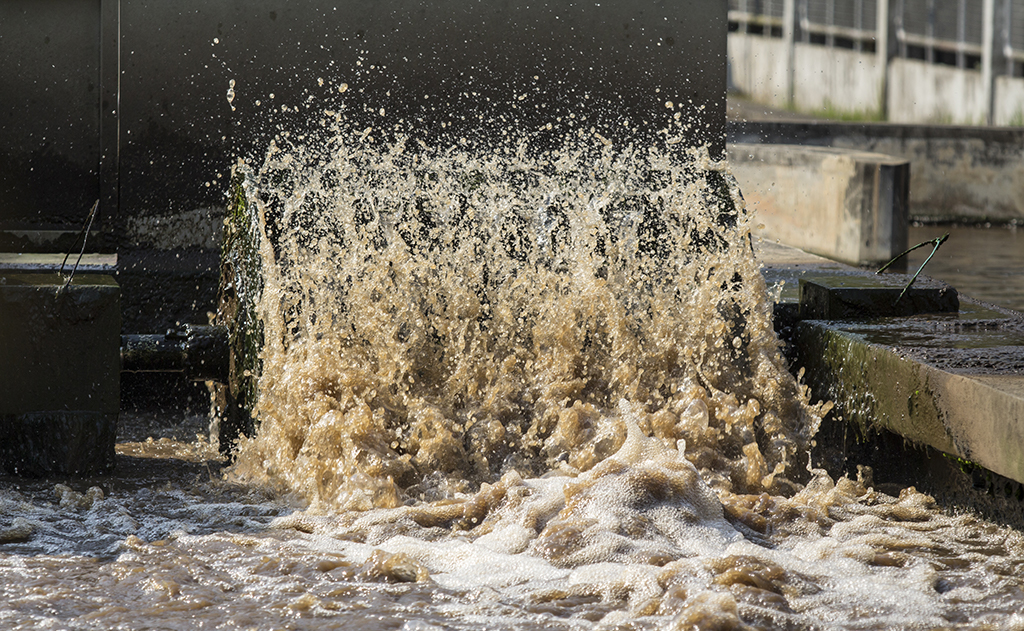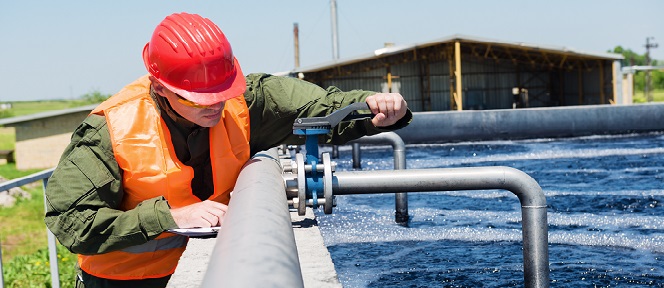In France, wastewater treatment is a highly regulated process. Different methods exist for inspecting the quality of treatment systems. One of the tools used to ensure that everything is running smoothly is the sewage system survey.
The sewage system survey is a certification procedure which must be undertaken during the sale of a property not connected to the mains sewage system. Why was the sewage system survey introduced? What must it include? Which professionals are authorised to carry it out and how can one be arranged?
What is the sewage system survey?
The sewage system survey is a compulsory property survey carried out during the sale of a house not connected to mains drainage. The purpose of the survey is to check that individual wastewater treatment systems comply with the current regulations. Septic tanks, leaching beds, integrated sewage treatment plants: this quick inspection procedure helps gradually improve the condition of individual sewage systems, since works have to be carried out on systems which fall short of standards.
As of 1 January 2020, in France sales of properties with septic tanks must be accompanied by evidence of a sewage system survey carried out within the last three years. Responsibility for providing this lies with the seller, who must submit the survey report to the future owners before the sale can be finalised. Like any other survey, this gives the buyer information on the condition of individual or community sewage systems connected to the property.
Why is the sewage system survey compulsory?
Currently in France, almost 20% of the population is still not connected to the public wastewater collection network. This equates to some 6 million potentially faulty or inadequately maintained individual sewage treatment systems (known in France as assainissement non collectif or ANC systems), which can pose a major risk to health and to the environment by releasing wastewater directly into the natural surroundings. To improve the situation, the French government’s water act of 30 December 2006, together with the so-called “Grenelle II” act of 12 July 2010, introduced a new assessment tool: the sewage system survey. The survey is compulsory for all domestic properties not connected to the public wastewater collection network.
The report from the sewage system survey is valid for three years. If no previous inspection has been carried out or if the existing report has expired, the owner selling the property must contact the SPANC , the French public body responsible for overseeing individual sewage systems, to arrange an inspection of the property’s sewage system.
Who is authorised to carry out a sewage system survey?
Unlike other property surveys, the sewage system survey is not carried out by a private surveyor, but rather by the relevant local French municipal or inter-municipal authorities. So the SPANC assumes responsibility for carrying out sewage system surveys, and the service may be free or involve a charge depending on the municipality. The SPANC (short for Service Public de l’Assainissement Non Collectif) was established through the French government’s 1992 water act, becoming a statutory service in every French municipality under the subsequent act of 1 January 1996.
Once an appointment has been arranged, an expert from the SPANC will check the condition of the system and the method used to discharge the wastewater. The inspector will then compile a report based on the inspection of the private section of the network; this sewage system survey report is an official document which assesses whether or not the system complies with regulations. The SPANC report includes recommendations on how to maintain the system, or on optional upgrading works to be carried out at the owner’s discretion. If the system is deemed not to be compliant, it is incumbent on the seller or buyer to undertake the work required to bring it up to standard. To arrange a sewage system survey, people just have to contact their nearest SPANC service or local authority who will be able to put them in touch with a surveyor.
The majority of individual sewage systems are believed to be faulty and/or inadequately maintained. It is estimated that in 2020, around 600,000 properties will discharge wastewater directly into the natural surroundings, triggering harmful effects on the environment, groundwater tables and waterways.
What does the sewage system survey involve and what must it mention?
During their visit, the SPANC surveyor will conduct the inspection in the presence of the property owner, or tenant if the property is rented. The owner is required to provide the surveyor with all available documentation: previous certificates of compliance, notices, title deeds, etc.
The sewage system survey follows strict specifications, which may vary depending on the type of system and when it was installed. Amongst others, these include:
- Identifying and describing the components of the wastewater treatment system.
- Checking the visible condition of the system.
- Assessing possible health risks to residents or sources of environmental pollution
- Inspecting material, pipework and watertightness of joints
- Describing runoff from internal equipment
- Making an inventory of possible maintenance issues and signs of wear and tear
- Ensuring that the system is the correct size for the building and usage
Following these checks, the property owner is given an inspection report; this document is known as the état de l’installation d’assainissement non collectif (analysis of the individual sewage system) certificate. It contains all the surveyor’s observations, as well as recommendations to the property owner on use, maintenance and works recommended to improve the system. When the property is put up for sale, this certificate must be appended to the preliminary sale agreement along with the other statutory surveys which make up the Dossier de Diagnostics Techniques (DDT), the pack of documents which must be provided by the seller as part of the sale process.
If any risks or irregularities are identified within the sewage system, an order may be issued for work to be carried out to bring it up to standard. Please note: these works must be carried out within a maximum period of one year from the sale.
To find out more about the sewage system survey, you may wish to consult the following legislation:
– The EU Water Framework Directive 2000/60/EC of 23 October 2000
– French law 2001-398 of 9 May 2001 creating a French Agency for sanitary and environmental safety
– The French government’s ruling of 8 June 2005
– French law 2006-1772 of 30 December 2006 on water and aquatic environments





